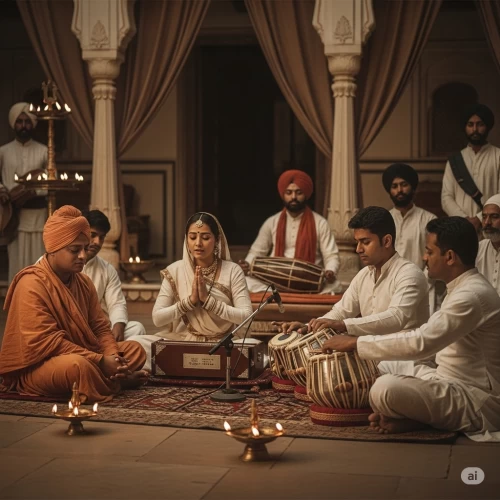The Courtesan and the Monk:Every woman is Divine

During one of his visits to the princely state of Khetri, Swami Vivekananda was staying as an honored guest of Raja Ajit Singh, a devoted admirer and patron of the young monk.
One evening, a court singer — a woman of great talent and deep musical devotion — expressed her wish to sing in Swamiji’s presence. However, Swamiji initially declined. She came from a courtesan background, and as a monk practicing renunciation, he felt it inappropriate to attend a performance by someone from her profession.
But the singer’s request was sincere, and Swamiji, moved by her humility and intent, finally agreed to let her sing.
When the moment came, she sang a devotional bhajan filled with poetic metaphors and deep spiritual symbolism. One verse struck Swamiji powerfully:
The iron idol in the temple,
And the butcher’s sword —
Both turned to gold,
When touched by the Lord.The Yamuna’s clean water,
And the dirty stream’s flow —
Both became holy,
When they met the Ganga below.
Her voice trembled with bhakti — not performance, but prayer. Her song was a plea not just to be heard, but to be seen — beyond the labels society had given her.
As Swamiji listened, the inner meaning of her song unfolded within him. It was not just a performance. It was a profound truth: that the Divine transforms everything It touches — stone, metal, or soul. No person is too impure to be sanctified by God’s presence.
At that moment, Swamiji’s heart opened. He remembered the teachings of his beloved Guru, Sri Ramakrishna Paramahamsa, who often said,
“Every woman is a form of the Divine Mother.”
From that day onward, Swamiji began addressing the singer with reverence — as “Mother.” She, in turn, treated him as a son.
For the rest of his stay in Khetri, their bond remained one of mutual respect and sacred love, transcending all barriers of caste, class, or custom — a living testament to the idea that God resides in every heart.